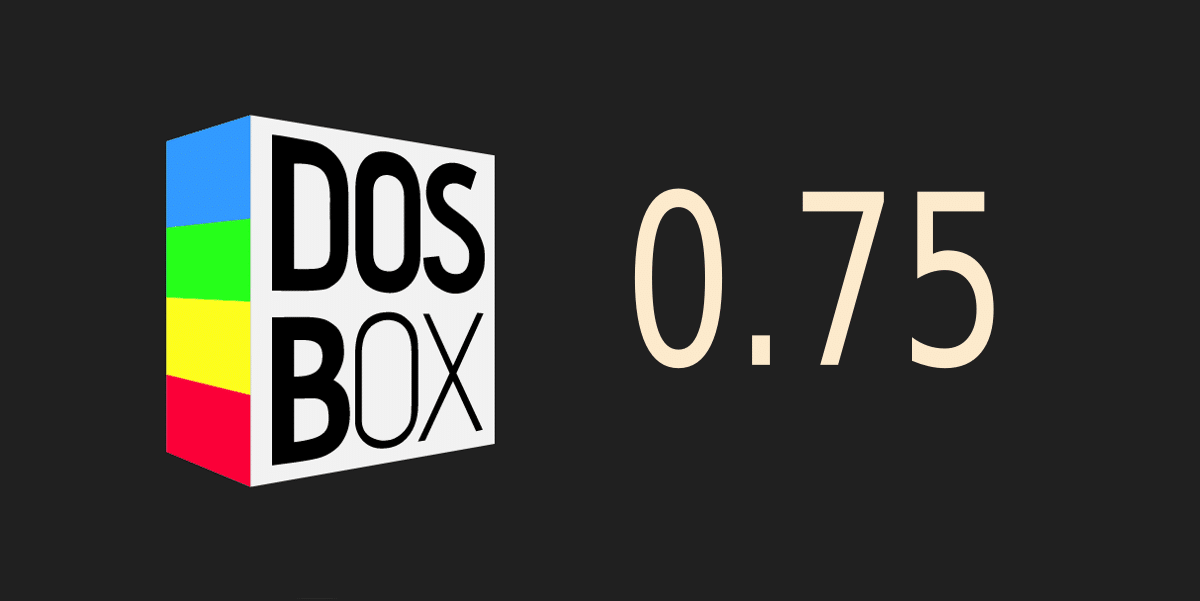
10 years after the last significant release of the popular DOSBox emulator a new version of this emulator arrives which was taken up by fans who started a new project, which gathered numerous followers and who worked on various patches so that this new version could arrive.
For those who are unfamiliar with DOSBox, you should know that this is a cross-platform MS-DOS emulator written using the SDL library and developed to run older DOS games on Linux, Windows, and macOS.
It is important to mention that this new project of "DOSBox Staging" is developed by a separate team and is not associated with the original DOSBox, in which only minor changes have been observed in recent years.
Among the objectives by DOSBox Staging there is the provision of an easy-to-use product, simplifying the involvement of new developers (for example, using Git instead of SVN), work for expanding functionality, the main focus on DOS games, and support for modern platforms.
The goals of the project are not to provide support for legacy systems such as Windows x and OS / 2, and to focus on emulating DOS hardware. The main task is to ensure high-quality performance of old games on modern systems (a separate dosbox-x fork is being developed to emulate the team).
What's new in DOSBox Staging 0.75?
In this new version development participants focused on transitioning to SDL 2.0 media library and which has been completed successfully, with it the support for SDL 1.2 has been discontinued, in addition to that it is also provided support for different modern graphics APIs, including the addition of a new "texture" output mode, which can work through OpenGL, Vulkan, Direct3D or Metal.
For the part of the improvements we can find that DOSBox Staging 0.75 has support for CD-DA files (Compact Disc-Digital Audio) in formats FLAC, Opus and MP3 (previously supported WAV and Vorbis).
Besides that added support for high resolutions, which consists in performing a correct pixel scaling mode but always trying to preserve the aspect ratio, for example, when starting a 320 × 200 game on a 1920 × 1080 screen, the pixels will be scaled 4 × 5 to obtain a 1280 × 1000 image without blurring.
The rendering settings have changed. By default, an OpenGL-based backend is used with 4: 3 aspect ratio scaling and correction using the OpenGL shader. Dynamic rebuild support added for 64-bit CPUs and monochrome and composite output modes were added for games written for CGA graphics cards.
Of the other changes mentioned of this new version:
- Added the ability to arbitrarily resize the window.
- The AUTOTYPE command has been added to simulate keyboard input, for example to bypass screen savers.
- New customization methods for mouse behavior have been added.
- By default, the OPL3 Nuked emulator is used, which provides better emulation of AdLib and SoundBlaster.
- Added the ability to change hotkeys on the fly.
- The configuration on Linux has been moved to the ~ / .config / dosbox / directory.
- Added support for using GLSL shaders to speed up the rendering of emulated output.
- C ++ 11 language constructs are now allowed.
- A Continuous Integration (CI) system was implemented that relies on every push of code to provide immediate feedback to developers
- Added static analysis checks by LLVM's Clang, Synopsys Coverity, and VIVA64 Program Verification Systems (PVS) Studio.
- Dynamic scan checks performed by Clang's Undefined Behavioral (UB) Sanitizer and GCC UB and Address Sanitizers have been added.
- Builds cleanly on all supported compilers and platforms
Finally if you want to know more about it, you can consult the details in the following link.
Installation
For those who are interested in being able to install this new version, they can consult the instructions In the following link.